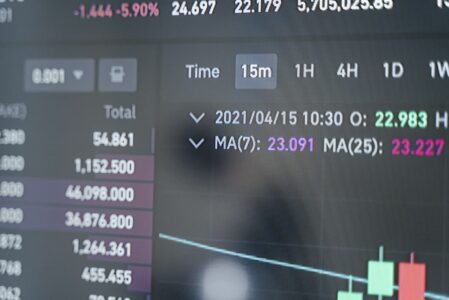Blockchain, the underlying technology behind cryptocurrencies, received a boost in 2022 as distributed ledger technology (DLT) became ubiquitous in the financial sector and more widely adopted in other areas.
Studies have shown a high interest in the implementation of DLT technologies on the part of securities market participants. For example, more than 20% of them expressed confidence that blockchain technologies will become the basis for a shortened cycle of exchange and OTC settlements.
The potential of blockchain was highly appreciated by representatives of the public sector in the framework of financial management and formation of fiscal policy. The use of DLT-technologies has the potential to provide the necessary level of transparency for the use of budgetary funds, which makes it possible to reduce corruption among officials.
DLT has also been applied to the issuance of government bonds. In June, one of the largest banks in the Philippines issued innovative blockchain-based local currency bonds. The digital infrastructure of such debt securities remained compatible with traditional trading infrastructure, allowing the country to add ~$209 million to its coffers.
The following initiatives of this type have been launched since 2022:
- In January, authorities in Gibraltar announced the migration of its entire government digital services system to blockchain, intending to improve the speed and efficiency of the country’s bureaucratic processes.
- In March, Washington State, USA, decided to create a special working group to study the practical application of blockchain in trade, services, industry and other sectors of the economy. The realization of these plans may start as early as the end of 2023.
- In April, two of South Korea’s largest banks announced plans to introduce blockchain-based distributed identity authentication technology for military personnel. And in October, the country’s government initiated the creation of a blockchain platform for issuing digital documents instead of physical IDs for all citizens.
- In August, representatives of the police department in the Indian state of Goa said they are using blockchain technology to digitize all their documents. The department plans to increase trust among citizens by providing transparency in its records management.
- In October, Thai and Hungarian authorities signed a bilateral agreement to jointly study DLT-technologies for further implementation in the financial sectors of the countries. The initiative is intended to become the basis for direct financial cooperation.
- In November, the UAE’s financial regulator introduced blockchain technology into the work of commercial courts. The innovation is designed to reduce financial costs, as well as speed up the processing of claims and enhance the country’s reputation as a leader in the digitalization of justice.

